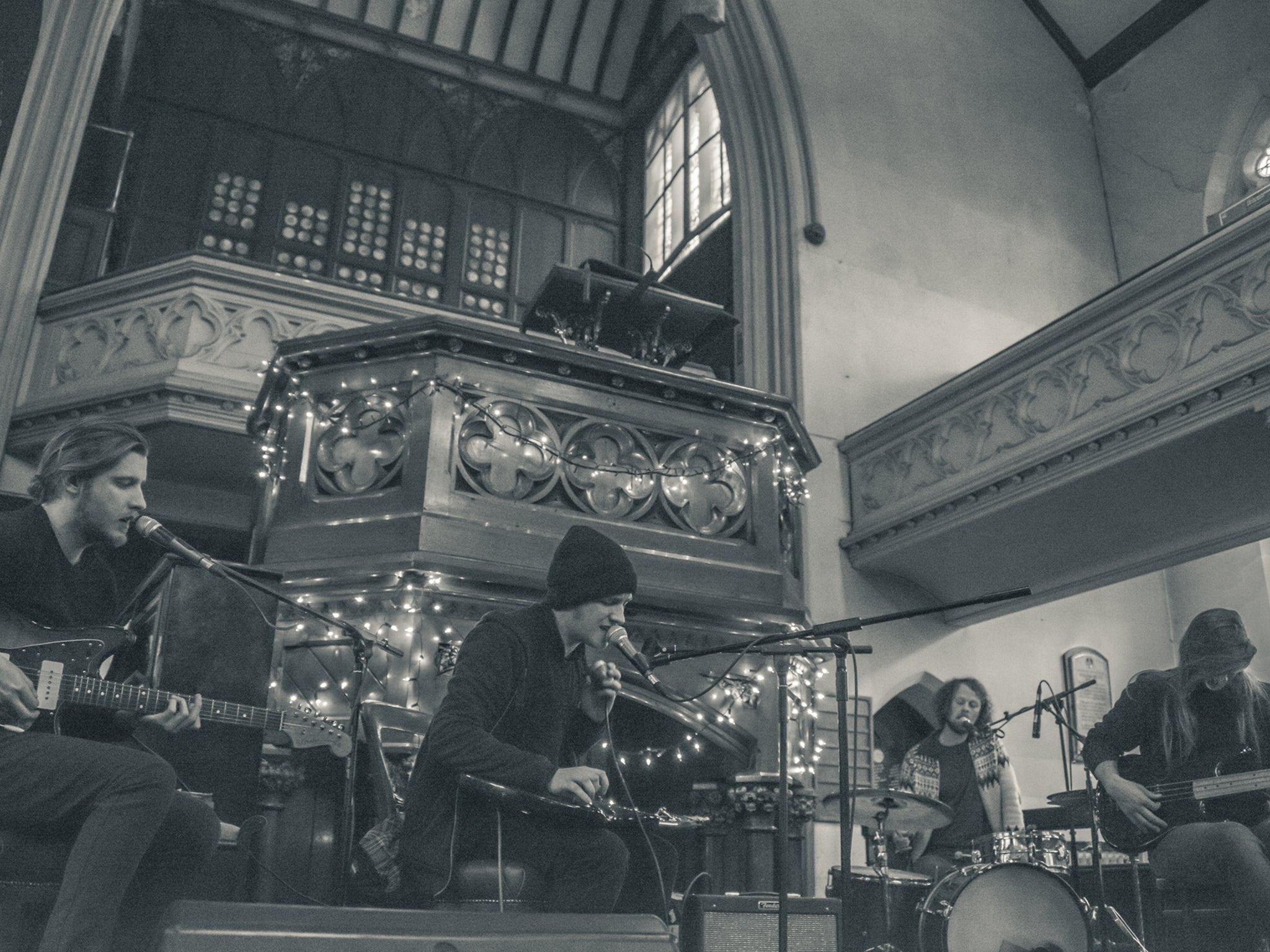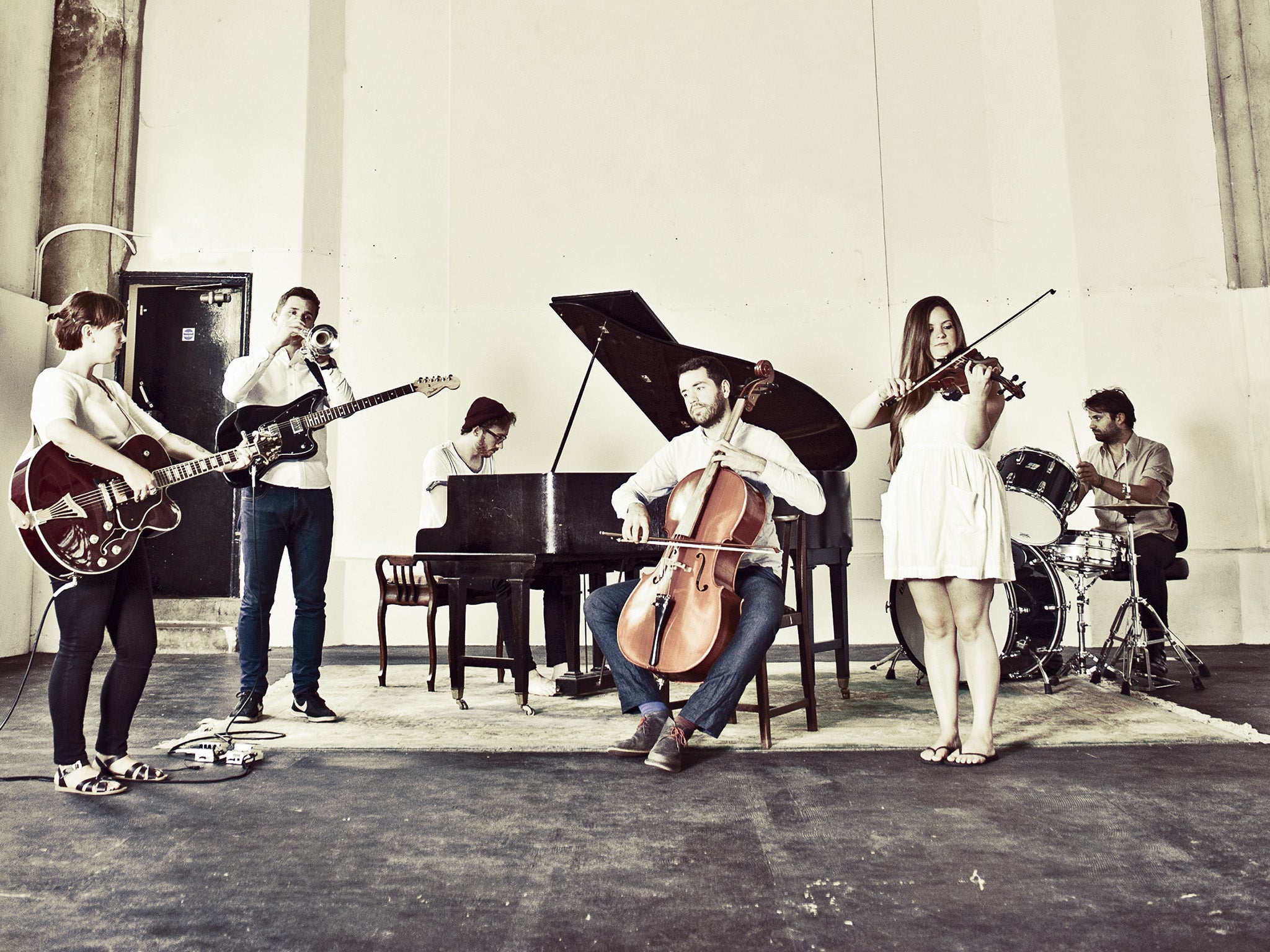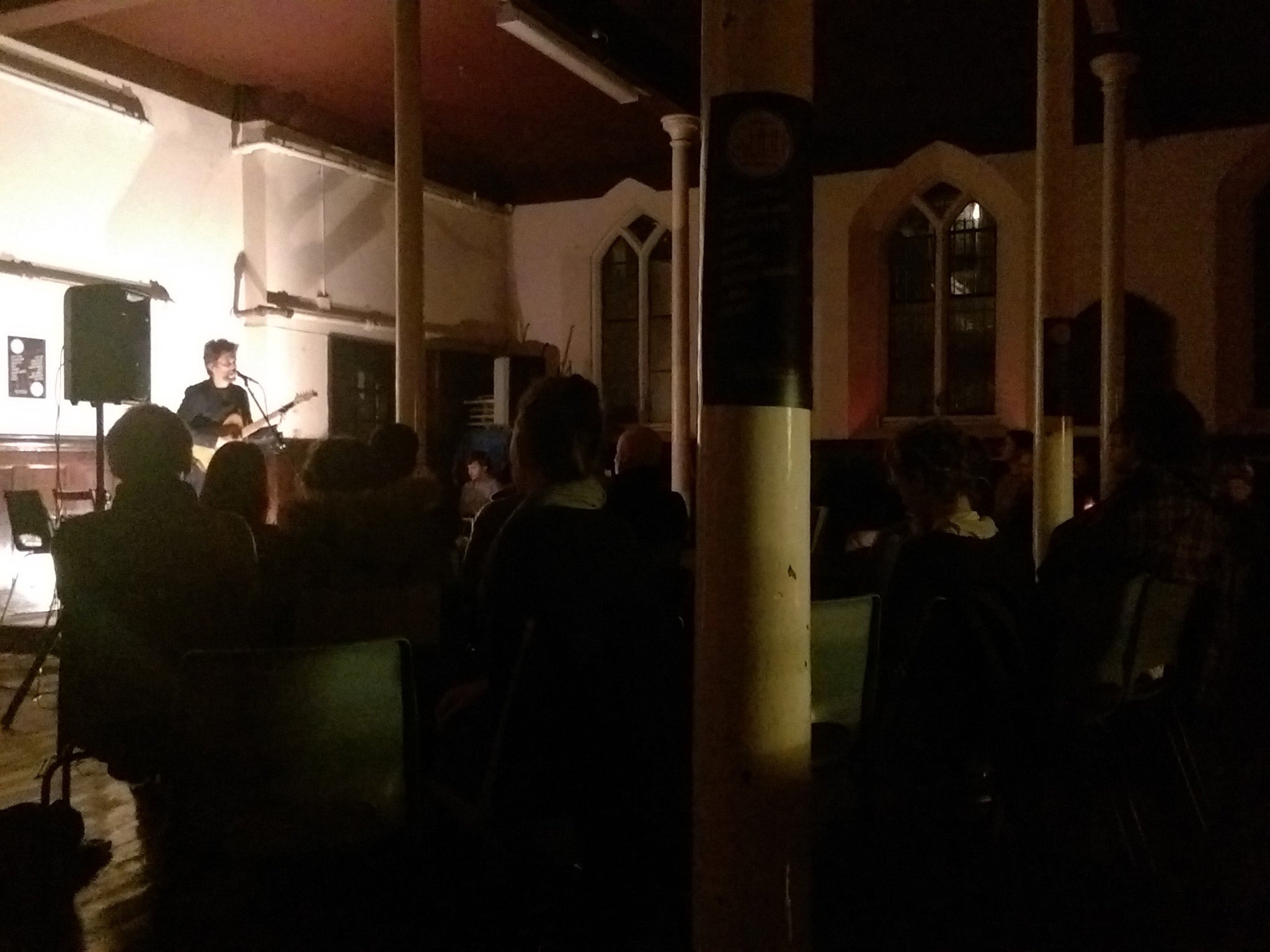Fed up with people talking during gigs? A new ‘quiet music’ movement could be just for you
Shhh festival, a day of 'quiet music' that took place last week in north London, showed us that silence is indeed golden

Georgina Walker is a part-time “shusher”. The 68-year-old’s job is to tell people at gigs to shut up. She was first enlisted in this endeavour eight years ago by Howard Monk, the programmer of the annual Shhh festival, a day of “quiet music”, that took place last week in north London.
“I’m notorious for telling people to shut the fuck up,” says Walker. “If I’m doing it as a job I’m actually very polite, at least the first time.” Although, when she’s doing it on her own time, she has no such qualms. Walker recalls a gig at London’s Koko, when two Swedish men were talking incessantly during a performance. “I turned and swore at them in Swedish and that shut them up,” she says. “You’ve never seen two people look so sheepish.”
Walker is only voicing what many of us feel when we’re at a gig, when the people around us are more concerned with catching up on what they did last weekend than what’s happening in front of them. “Quiet music” festivals, such as The Quiet Music festival of Portland and the Shhh Festival, which has appeared in London, Glasgow and Leeds, are providing an antidote to the discomfort of having to shush people.
“It is not a social event,” says Alex Carson of Wooden Arms, a classically-influenced band who played at Shhh this year. “You are there to actually just enjoy the music and it does require people to be quiet.”
Anika Mottershaw first went to the Shhh festival five years ago, when she was 19. It was then held at the folk-arts centre Cecil Sharp House, although this year it was at the elegant Heath Street Baptist Church in Hampstead. Mottershaw is a super-fan of quiet music, but defines it as a way of listening attentively rather than associating it with volume. “Saying you like quiet music is kind of like saying you like vegetables. The genre is massive,” she says.
Andreya Triana makes soul music which she describes as “from the heart with lots of harmonies and foot-stomps.” It’s passionate and moving but the key thing about her sound is she enunciates – you can hear each and every word on her recordings – something she is keen to replicate in a live setting. Although she has played to large crowds, like the 1,700-capacity Roundhouse in London, she prefers small, quiet gigs. “Playing to a smaller and more intimate audience can be nerve-wracking but is ultimately an amazing experience,” she says. She deliberately chooses venues where the crowd is likely to be attentive, so none of the emotion in the lyrics is lost under a wave of chatter. “That’s definitely my ideal setting” she says, “as the songs tell stories.”

Laura Moody is a fan of quiet listening and a classically-trained musician who usually only plays quiet-music events. Her sound is both other-worldly and earthy, combining a cello with quirky vocals. She throws in frequent guttural, yearning noises, howls and screeches into her songs. “It’s quite dynamic and nuanced so it doesn’t work so well in noisy, chatting environments,” she says, but she has noticed that, even when she’s competing with other sounds, audience members have become very sophisticated at tuning it out and focusing just on her. “Like at festivals when they to filter out the noise of the dance tent.”
Ian Cross, director of the Centre for Music and Science at the University of Cambridge, suggests there are several reasons why quiet music is gaining a following. “Listening is not privileged in contemporary society,” he says, suggesting that cities in particular have a constant background level of noise that we’re not able to cope with – and quiet music provides an escape. “The urban landscape is something you have to traverse [with difficulty] because it’s not designed for humans to inhabit aurally,” he says.
In fact, studies on restaurant noise levels have found that all those smooth, easy-clean surfaces constantly reflect sound, resulting in background noise averaging 110 decibels (dB). That’s even louder than a motorbike and only 5dB lower than the average rock concert. This over-stimulation is both stressful and harmful. “At 110 to 120dB, a number of things will be happening,” says Cross. “Pretty high arousal, habituation and noise-induced deafness.” Quiet music offers what Cross calls a “psychoacoustical release” – a break from both background noise and a rest from having to process several activities at once.
Enjoy unlimited access to 100 million ad-free songs and podcasts with Amazon Music
Sign up now for a 30-day free trial
Enjoy unlimited access to 100 million ad-free songs and podcasts with Amazon Music
Sign up now for a 30-day free trial
Walker seeks out these kinds of quiet experiences. She recalls an acoustic set at Cafe Oto in Hackney, London, where staff turned off the fridges so there was no background hum.

Shhh festival programmer Howard Monk believes that quiet music is tied to the idea of paying attention to the world around you and escaping constant background interference. “Perfect silence is in very short supply. You’d have to go to Dartmoor or the Scottish Highlands or somewhere like that to find it,” he says.
Cross suggests it’s not just our biology that’s driving this quiet revolution against noise, it’s also cultural. “What’s happening to an extent is an outgroup thing,” he says. “If you want to be a hipster, which by and large many of those people seem to do, that has to be in opposition to something and quiet music is a good starting point.”
But, “noise is perfectly good when that’s something you’re supposed to be hearing,” says Monk, who used to find Metallica so soothing it sent him to sleep.
“I like it when the bass is so loud you can feel your chest vibrating,” says Walker, who then considers, “but I don’t like people whispering, and they don’t realise how far that travels.”
Mottershaw agrees. “Quiet music can be played loudly. For me, perhaps it inspires more of a sense of introspection and beauty than how loud you hear the sounds.”
So it’s time to unplug your washing machine and focus on the moment. Quiet music, like silence, is golden.
Join our commenting forum
Join thought-provoking conversations, follow other Independent readers and see their replies
0Comments